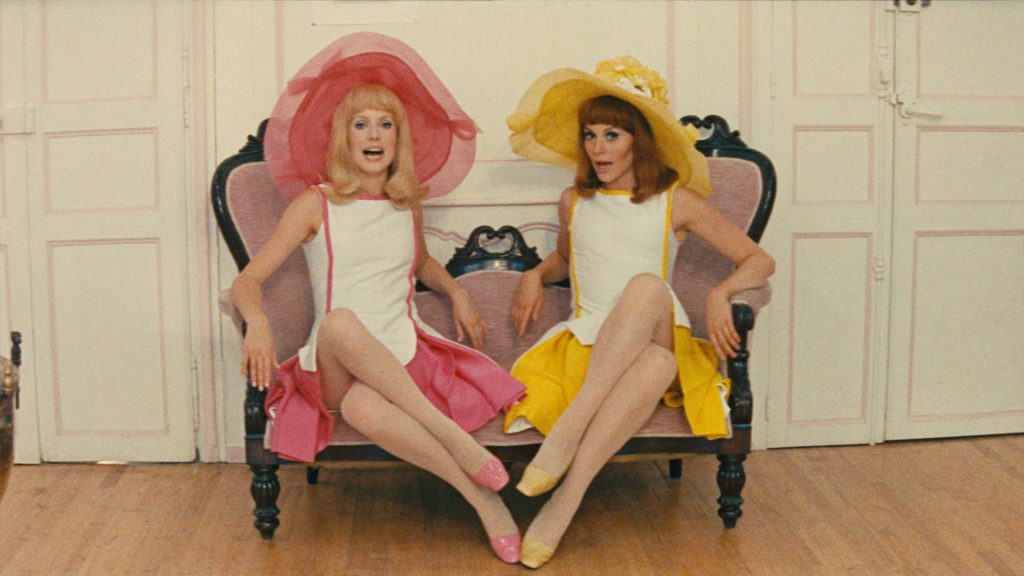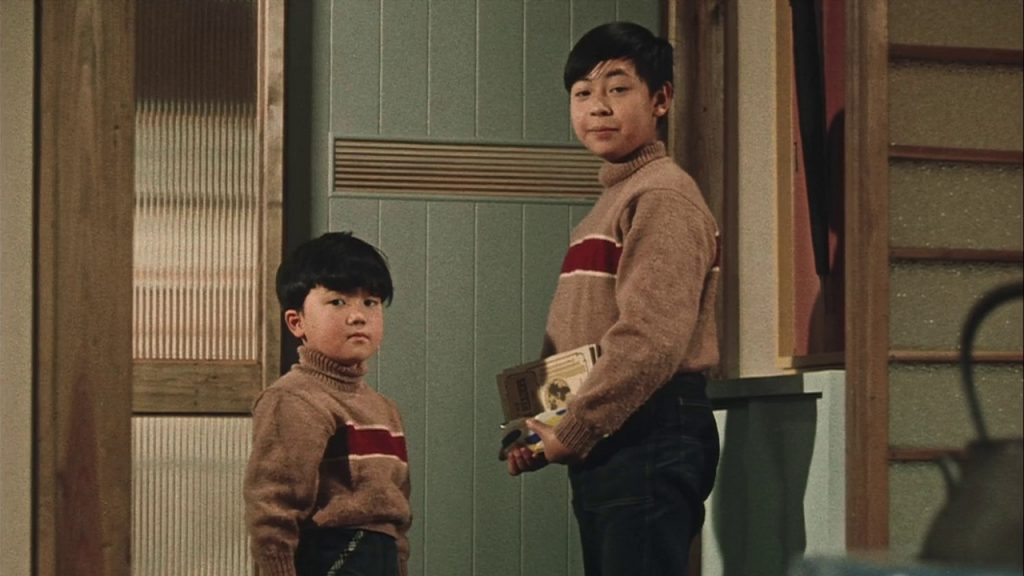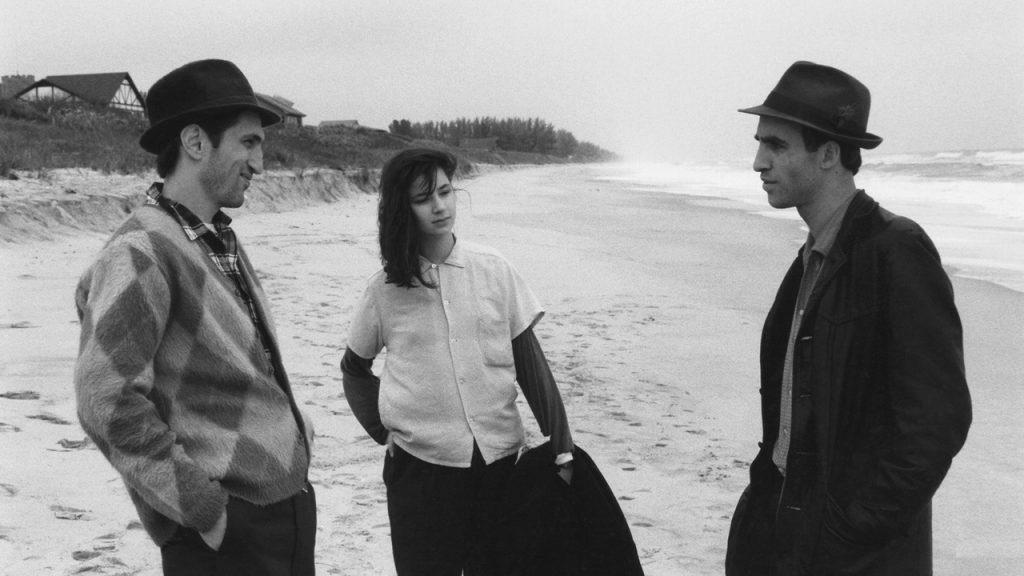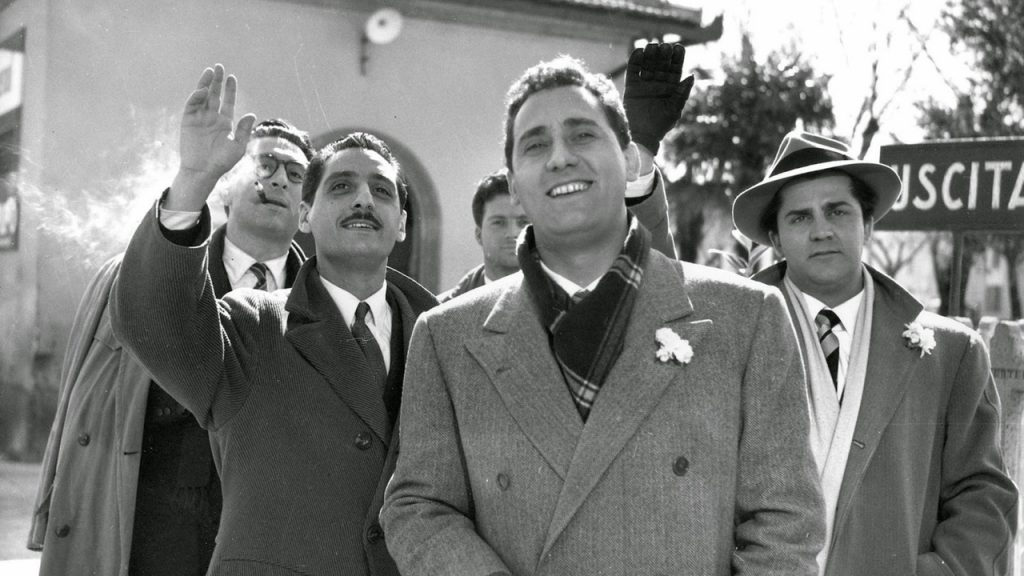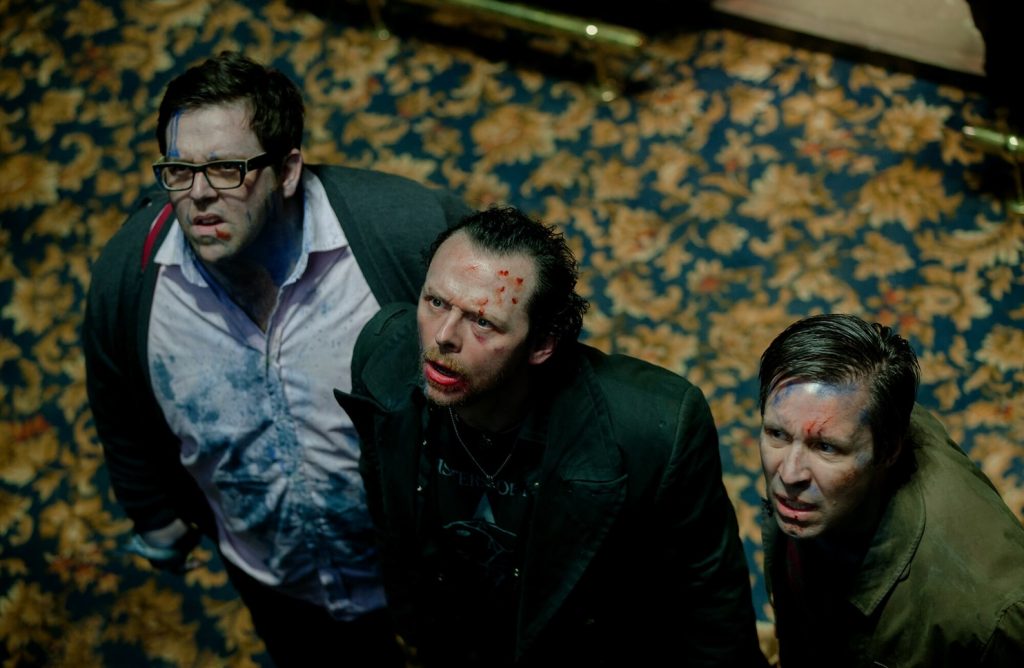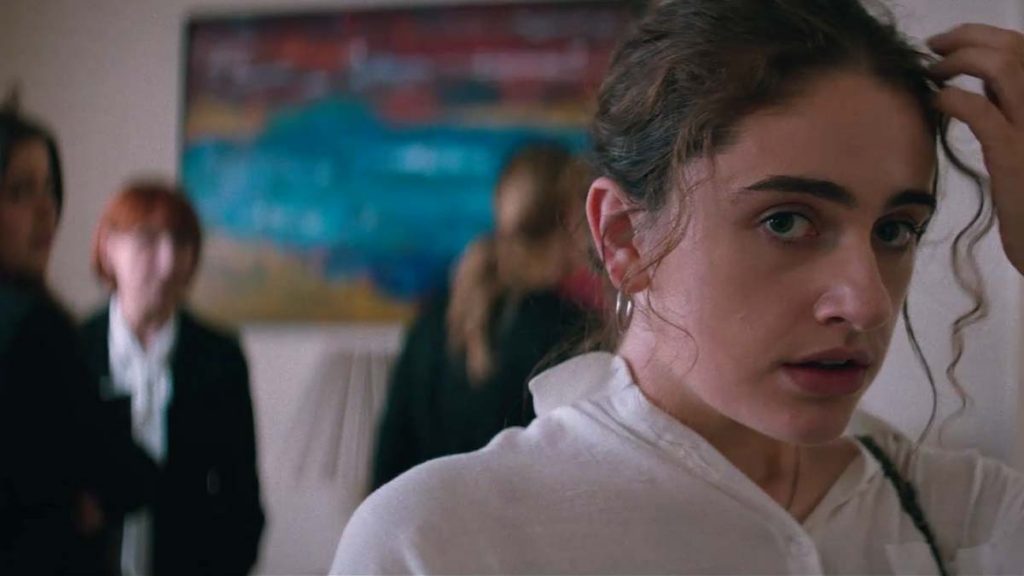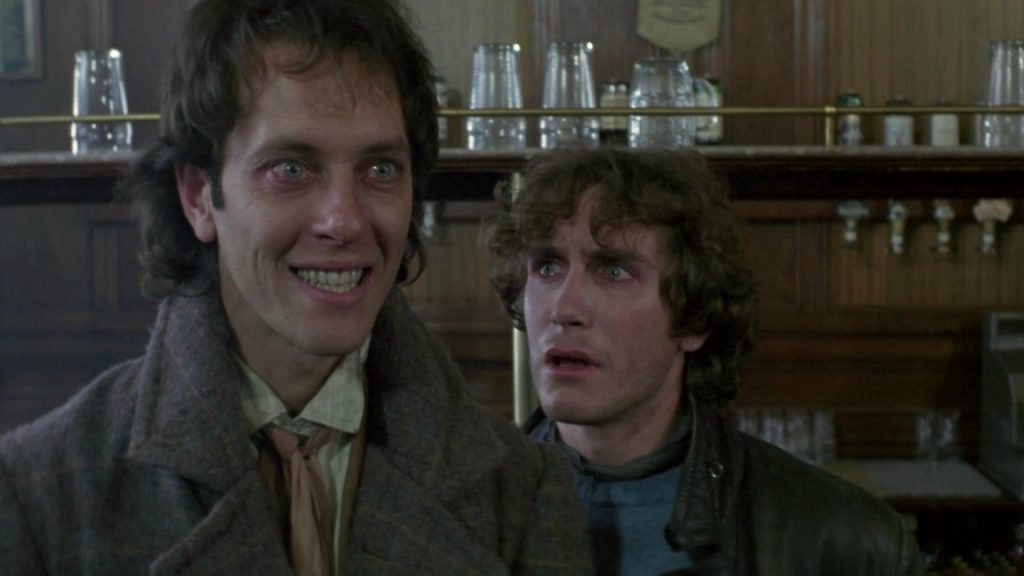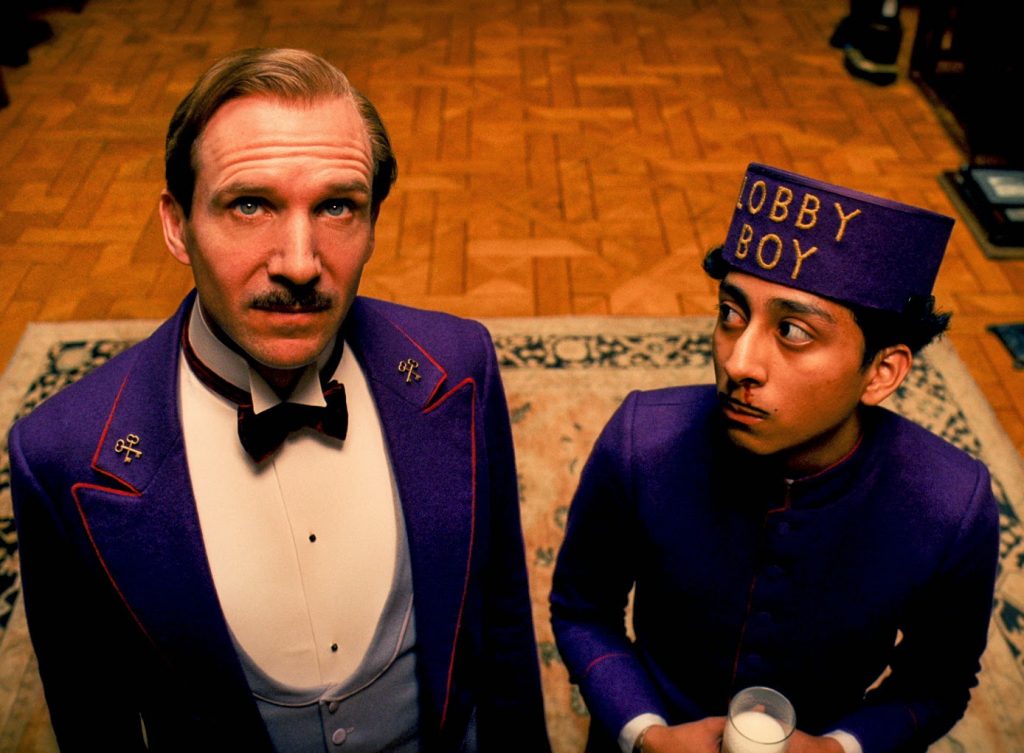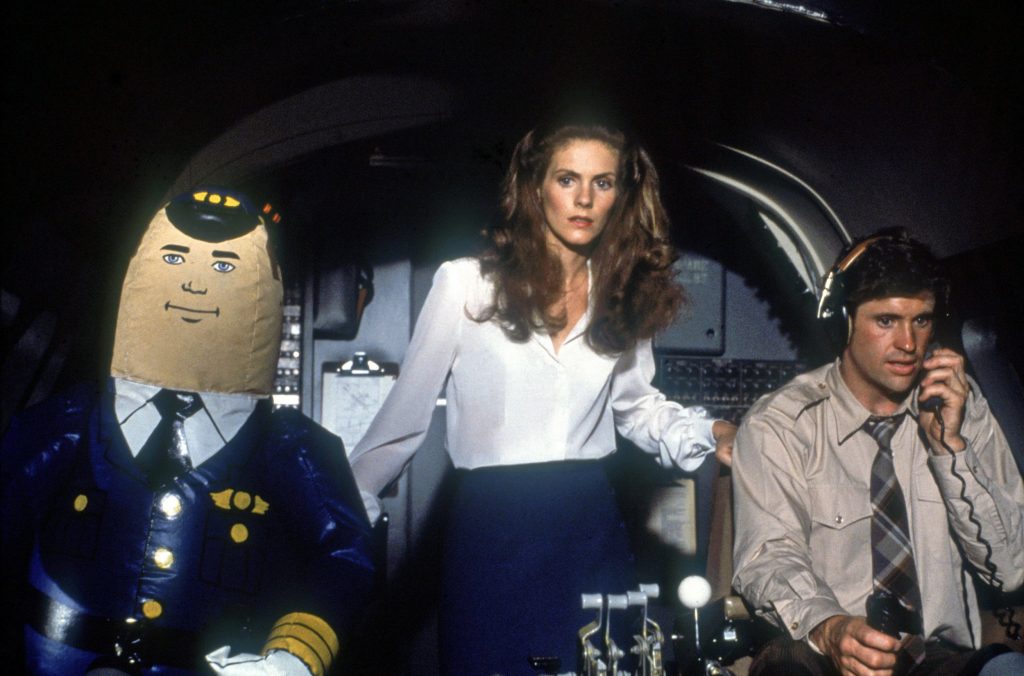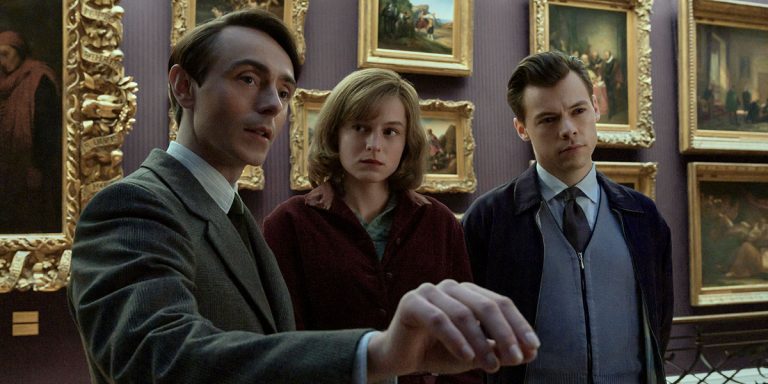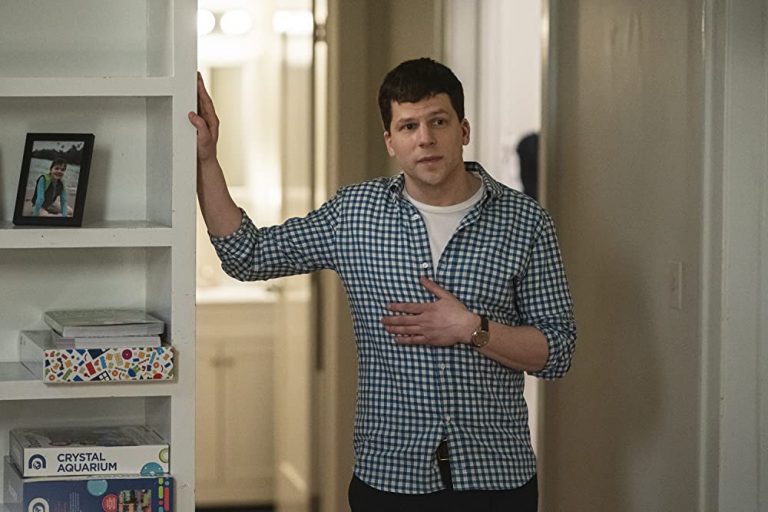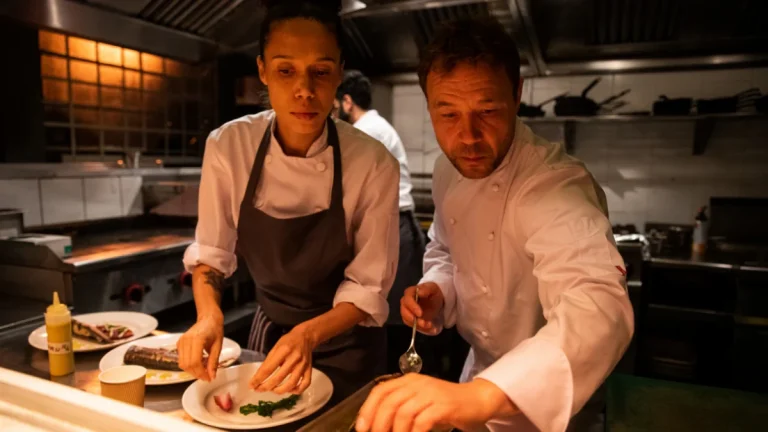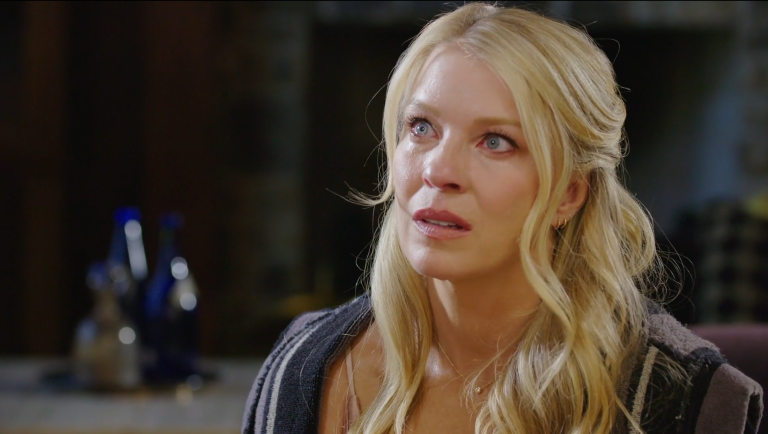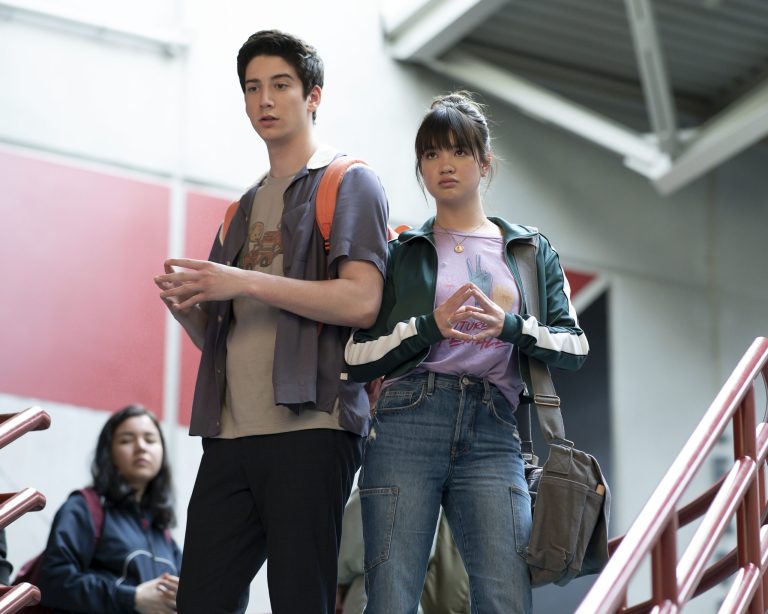20 Hilarious Comedies on HBO Max: Movie comedies are often so hung up on being contemporary, radical, and cynically satirical that they sometimes forget to be funny. We rarely get a corny comedy film these days that actually has the nerve to make us groan loudly. There are many sharp, intelligent comedies, but the problem is, we didn’t laugh at or with them.
Humor, for most times, is not universal. For me, the humor that travels universally is seeded so deeply in one’s specific culture that it’s funny for others because the other cultures have been ignorant of them.
HBO Max is that one platform that serves a buffet of comedies. Slapstick, situational, physical, visual, satirical, absurd, dark, dirty, pick your style and laugh out loud. Here are a few of my absolute favorite comedies available on HBO Max right now. I’ve ordered them according to how much & how often they have made me laugh/ chuckle/ smile, basically serving the purpose of a comedy film. See them with the lens of a comedy, not on the merit of filmmaking.
You can access all the films on this list by using ExpressVPN. ExpressVPN is fast, secure, and unlocks HBO Max catalogs from around the world. Here are some exciting deals for you.
20. The Young Girls of Rochefort (1967) (Dir. Jacques Demy)
A French musical comedy, The Young Girls of Rochefort, follows Delphine (Catherine Deneuve) and Solange (Françoise Dorléac), twin sisters who each want to find romance and leave their small seaside town of Rochefort, France. Soon they befriend a couple of visiting carnival workers who frequent their lonely mother’s (Danielle Darrieux) café and hire the girls to sing in the carnival. Wanting a career as a songwriter, Solange falls for an American musician, Andy (Gene Kelly), while Delphine dumps her beau and searches Rochefort for her ideal man.
Director Jacques Demy originally thought of casting Brigitte Bardot and Audrey Hepburn as the twin sisters but eventually hired real-life sisters Catherine Deneuve and Françoise Dorléac (not twins). Unfortunately, Françoise was tragically killed in a car accident at age 25, just three months after the film’s release in France. The Young Girls of Rochefort was also cited as the main inspiration behind Damien Chazelle’s Oscar-winning film La La Land (2016).
The plot is not entirely original (but it doesn’t have to be) or layered because musicals are mostly fantastical in their texture. The Young Girls of Rochefort is a prismatic venture into spring-like colors, energetic singing & dancing. It’s a ray of cinematic Sun shining bright, and it’s certainly going to bring a smile to your face.
19. Good Morning (1959) (Dir. Yasujirō Ozu)
It’s hard to imagine a slighter story to construct a full movie – two boys in 1950s Japan vow to remain completely silent until their parents buy them a television set. But legendary Japanese director Yasujirō Ozu builds an entire world around it with undeniable humor and wit.
Good Morning looks at Japan when it was just standing up on its feet post-war and embracing consumerism. But unlike the dull suburban town the film is based in; the script does not have even a single dull moment. It’s fun and funny. It is a loose remake of his own 1932 silent film I Was Born, But…, and is Ozu’s second film in color. The radical rejection of Japan’s self-restraint and silence gets a visual, flatulence, and situational comedy spin. The bitter irony of ‘50s Japan is delightfully captured by Ozu.
The film is made with a profound amount of respect for storytelling and the audience rather than forcing his way of seeing the world onto us. Demonstrating the strength of small talk and oral communication, Good Morning chooses silence as a tool for comedy, and that is an absolute masterstroke. It is a story about an unconventional family, aspirational consumer culture, capitalism, and failure. Even after over six decades, Good Morning feels relevant and fresh and rewards the viewer with a generosity of spirit. One of the most heartwarming comedies on HBO Max.
18. Language Lessons (2021) (Dir. Natalie Morales)
Not technically a comedy, Language Lessons, is definitely witty, outrageously original, subversive, and uncomfortably real. You’ll smile, laugh and cry throughout the film. Actress Natalie Morales directed and featured in the film. She had two directorial releases in 2021. While Language Lessons went to the festivals first, Plan B became available for the public first on OTT. So, her directorial debut is ambiguous!
The film follows the unexpected friendship that develops between Adam (Mark Duplass), a man whose husband surprises him with online Spanish lessons, and his teacher, Cariño (Natalie Morales). The film’s aesthetic is simple yet appealing. The style is light and fun; still, there are statements, and they are provoking if pondered. Language Lessons is all heart, and Mark Duplass and Natalie Morales shine through it.
Voyeurism is the major motif of the film. Given the cinematic tool Natalie has used to tell the story, one is always peeping into another’s life through technology. It’s Rear Window (1954) played for whimsy.
17. Stranger Than Paradise (1984) (Dir. Jim Jarmusch)
While designing this list, I realized the deadpan, absurd form of comedies are my favorite! You’ll find many on this list. Stranger Than Paradise is a rich essay on loneliness and disappointment. It oscillates between tragic and comic from almost frame to frame and often has a foot in both pools. Minimalistic as it gets, Stranger Than Paradise brought Jim Jarmusch onto the independent directors’ map in the 80s.
The film traces Willie (John Lurie) and his dopey sidekick, Eddie (Richard Edson). Willie gets an unwelcome visit from his Hungarian teen cousin, Eva (Eszter Balint), but just as he warms to her, she ditches him for her aunt in Cleveland. Impulsively, Willie and Eddie take a road trip to pick up Eva, after which they head out to find fortune and paradise in Florida or at least alleviate their constant boredom.
The whole film is sequence shots with live sound – the editor’s job was to simply put them end to end. The film’s scenes are each a single shot, followed by a few seconds of black screen. Consists of just sixty-seven shots (to give you a context, the average feature film contains about twelve hundred). Stranger Than Paradise is odd, amusing, and inspiring. This beautifully uncomfortable black-and-white gem deserves a larger audience.
Related List: All Jim Jarmusch Movies Ranked
16. Limbo (2020) (Dir. Ben Sharrock)
If Wes Anderson and Taika Waititi had a baby, it would be called Limbo. Director Ben Sharrock’s style and humor totally resonate with the two visionaries. Limbo is a wry, minimalistic, slow-paced, poignant tale of those lost in transition, outcasts, and isolated. The asylum-seeking process is dissected with humor, sorrow, loss, empathy, and humanity.
Set on a fictional remote Scottish island, Limbo follows a group of new arrivals awaiting the results of their asylum claims. It centers on Omar (Amir El-Masry), a young Syrian musician who is burdened by his grandfather’s oud, the king of Arabic music instruments, which he has carried all the way from his homeland.
Given the difficult subject matter of refugees, Ben Sharrock was quite surprised in talking to people who had fled their home countries, and many of them took comfort in humor. That’s why he deliberately incorporated a lot of humor into his screenplay. With a slightly dragged second half, Limbo is a throwback of sorts to the days of Bill Forsyth’s cinema. The plight of refugees is never out of sight, even though we are smiling and laughing throughout. In wonderment, you will gaze at the screen, trying to find empathy in humor. Limbo is a must-watch.
15. Mon Oncle (1958) (Dir. Jacques Tati)
Genial, bumbling Monsieur Hulot (Jacques Tati) loves his top-floor apartment in a grimy corner of the city and cannot fathom why his sister’s family has moved to the suburbs. Their house is an ultra-modern nightmare, which Hulot only visits for the sake of stealing away his young nephew (Alain Becourt). Hulot’s sister (Adrienne Servantie), however, wants him to adjust to this new age, and have a wife & a job.
Mon Oncle is a manifesto of a post-modern Chaplin! Actor-director Jacques Tati walks the world as delightful and strange as Chaplin’s, but only with more absurdity & poetry. Much like Chaplin’s City Lights and Modern Times, the sound tapestries of surroundings (traffic, birds, footsteps, etc.) harp on to the style.
The comedy of the film unfolds a new layer each time you watch it. On the first watch, you’ll get the running theme, major jokes, and charming visuals, and you’ll have a pleasant experience. The subsequent number of views will let you embrace the invisible jokes, hidden motifs, and meticulous details. I would highly recommend at least three screenings to completely immerse into the brilliance of Mon Oncle. While filming, Jacques Tati and his crew came across a playful group of street dogs. Tati took several shots of them, which he later used to connect scenes. Dialogue is avoided unless absolutely necessary. Mon Oncle is a visual comedy that is functionally voyeuristic, where the audience is spying.
14. El Planeta (2021) (Dir. Amalia Ulman)
An absurdist comedy, El Planeta tracks soon-to-be evicted mother-daughter grifters, María Rendueles and Leonor (or Leo) Jimenez, in the aftermath of the 2008-2014 Spanish financial crisis. The film is loosely based on the real-life Spanish mother-daughter petty-crime duo Justina and Ana Belén.
Not sure what I expected when I got into the film, but it was a delicate, intimate and unhurried experience. Set in the gray, bored Gijón, Ulman’s hometown, El Planeta, hints at the domesticity of Hong Sang-soo. Embracing the oceanic landscape of the town, director Amalia delightfully captures the portraits of paused time. She doesn’t judge her characters and never allows the audience to do so either. With all the questionable, cringy decisions the mother-daughter duo makes, they still maintain the agency of dignity and choices.
Amalia, and her real-life mother play the lead characters. The tone is playful and meditative at once. Amalia’s impact in shaping contemporary art and culture is already undeniable. She broke into the world’s artistic map with her 2014 project, “Excellences and Perfections.” And with El Planeta, she makes a very unique feature debut, almost reintroducing the post-internet generation to the auteur cinema. It’s funny, rebellious, heart breaking and non-conformist. If you don’t laugh out loud, at least it’ll make you chuckle all through. One of the best comedies on HBO Max.
13. Daisies (1966) (Dir. Věra Chytilová)
Chances are that Daisies, won’t bloom for you because of its absurdity. Sharply experimental, and accurately vague, the film was the centrepiece of the Czech New Wave in the 60s. It defined the movement. In all probability, it would be one of the craziest films you will ever see.
It follows two young girls (Jitka Cerhová and Ivana Karbanová), both named Marie, go on a surreal rampage through society and break all the rules! Banned by the Czech authorities, Daisies is as offensive as it is funny. But, don’t go in expecting laugh-out-loud moments. The comedy is smart, convoluted, slapstick and physical, all at once. The film inverts the societal conformation for a woman, and uses it to manoeuvre its attack on communism and patriarchy.
With Daisies, director Věra Chytilová, creates unsympathetic characters, celebrates absurdities, and uses her two lead characters as hyperbolical pawns to observe her satirical comment. The technical finesse of Daisies can put a 2022 release to shame with surreal, fragile frames, mind bending art direction. The psychedelic explosion simply pollinates the film. If you enjoy the oddball non sequiturs, abstract form of cinema, I would highly recommend Daisies, with all its chuckles and strong standpoint.
12. I Vitelloni (1953) (Dir. Federico Fellini)
A comedy-drama from the great Fellini, which is pivotal work in the director’s artistic evolution. I Vitelloni, has autobiographical elements that reflect societal changes in 1950s Italy. It also launched the career of its star Alberto Sordi, one of post-war Italy’s most significant and popular comedians.
Five young men dream of success as they drift lazily through life in a small Italian village. Fausto (Franco Fabrizi), the group’s leader, is a womanizer; Riccardo craves fame; Alberto (Alberto Sordi) is a hopeless dreamer; Moraldo (Franco Interlenghi) fantasizes about life in the city; and Leopoldo (Leopoldo Trieste) is an aspiring playwright.
I Vitelloni, is a series of annotations, and expressions without unity. It paints an authentic picture of aimless youth. With sensitive and observational humor, the film tells the story of hopes and miseries of four friends. Martin Scorsese was highly inspired by I Vitelloni for his Mean Streets (1973). One of his most neglected films, I Vitelloni, is the bridge that Fellini crossed from neo to sur. It’s a member of the coveted 100% Rotten Tomato Rating Club.
Related List: 10 Best Films of Federico Fellini
11. The World’s End (2013) (Dir. Edgar Wright)
Gary King (Simon Pegg) is an immature 40-year-old who’s dying to take another stab at an epic pub-crawl that he last attempted 20 years earlier. He drags his reluctant buddies back to their hometown and sets out for a night of heavy drinking. As they make their way toward their ultimate destination – The World’s End pub – they realize their hometown is in the middle of a war.
Director Edgar Wright worked on the screenplay titled Crawl, about a group of teenagers on a pub crawl in 1995, at the age of 21. He later realized that the idea could work better with adults, as comedic exploration and reworked on the script in the early 2010s with Simon Pegg.
Felicity, Andy’s assistant from the start of the film, is named after a young woman from Stockport, called Fliss, who tragically passed away. She was a massive Simon Pegg fan and he had sent her signed pictures at the request of her dad when she was ill. She passed before she could receive them. When Simon Pegg found out, he wrote the character into the movie in her memory. The World’s End, refused to adhere to a proven formula. Edgar & Simon’s writing bravely shifts tones but never loses out on the heart. Some might find the climax too silly, but hey! What do you expect after a dozen beers?
Related List: All Edgar Wright Movies Ranked
10. Shiva Baby (2020) (Dir. Emma Seligman)
Shiva Baby, stars Rachel Sennott as Danielle, a directionless young bisexual Jewish woman who attends a shiva with her parents, Joel (Fred Melamed) and Debbie (Polly Draper). Other attendees include her successful ex-girlfriend Maya (Molly Gordon), and her sugar daddy Max (Danny Deferrari) with his wife Kim (Dianna Agron) and their screaming baby.
Don’t get influenced by the dull-sounding premise, the unfolding is tremendously funny, catastrophic and poignant. The events of the film take place in 24-hours, and at one location. For the unversed, a shiva is a period of mourning following a death in Jewish customs. Rachel Sennott as Danielle is a revelation! She was robbed of the Best Actress nominations that year. She is simply phenomenal. So is the rest of the cast.
Based on director Emma Seligman’s short of the same name, Shiva Baby, manages to be the most anxiety inducing experience without it being a thriller or suspense slash horror. Though, the composer Ariel Marx treated this comedy as horror and his score will remind you of every scary film you have ever seen. Imagine Rosemary’s Baby or mother!, but as comedies. It will take your breath away, literally. Not going to spoil anything but Shiva Baby, manages to capture one of the most meaningful moments of hope ever. Find out which one is that for you.
9. The Player (1992) (Dir. Robert Altman)
The Player, is an insidiously clever dark comedy. It’s the best anti-Hollywood film ever produced by Hollywood. It’s meta, obscenely funny and twisted. Certain that the anonymous threats he’s been receiving are the work of David Kahane (Vincent D’Onofrio), producer Griffin Mill (Tim Robbins) tries to fix things over cocktails. Instead, Griffin ends up murdering the screenwriter and courting the dead man’s girlfriend (Greta Scacchi). As police investigate, Griffin concentrates on a prestigious film that might reinvigorate his career. But he soon learns that David’s demise hasn’t been forgotten by everyone in Hollywood.
There are a total of 65 celebrities making cameos in the film and none of them were written in the script. Director Robert Altman added them all in later. The Player, gives new configuration to the dark underbelly of Hollywood, without severely offending anyone. In fact, after the film’s success and multiple award nominations, Altman told Tim Robbins, “I think we were too nice to Hollywood in the film. It shouldn’t be this successful.”
It’s a zany, very self-aware film which might be too subtle a comedy for a non-film fan or non-professional. But, for a film buff, the comedy is laugh-out-loud. With a bad attitude, and truck load of entertainment, The Player is one of the best comedies available on HBO Max. Don’t miss it.
8. Withnail and I (1987) (Dir. Bruce Robinson)
“I feel like a pig shat in my head.”
Eccentric, dark, original and hilarious – Withnail and I, is one of the finest and most iconic British films with many quotable lines. The plot follows two unemployed actors, Withnail and “I” (portrayed by Richard E. Grant and Paul McGann, respectively) who share a flat in Camden Town in 1969. Needing a holiday, they obtain the key to a country cottage in the Lake District belonging to Withnail’s eccentric uncle Monty and drive there. The weekend holiday proves less recuperative than they expected.
Withnail and I, is loosely based on the director Bruce Robinson’s own experiences in 1960’s London, during his drama school days. Originally written as a novel with a much darker ending, Bruce’s actor friend Don Hawkins passed an unpublished copy around and eventually, it was turned into a screenplay in the early 80s. While the name of “I” is never spoken in the film. Fans had many theories about the name, but in the script, it was Marwood.
Paul McGann was hired as “I” but Bruce eventually fired him because he didn’t like his Liverpool accent. He then offered the role to Kenneth Branagh, who refused. Paul requested for another audition with his newly acquired accent, and won the role back! The film has an abundance of acerbic insults, quick wit, piercing interposes and one-liners, Withnail and I, could also be the most quotable film in cinema history.
7. The Philadelphia Story (1940) (Dir. George Cukor)
Okay, confession time. The starry-eyed Katherine Hepburn fan in me had to include The Philadelphia Story. But listen, it’s actually a hilarious film which became an instant classic upon release. However, even after watching it, if you think the fanboy in me blurred my subjectivity, you are more than welcome to bash me in the comments. But, not before giving it a shot!
This comedy focuses on Tracy Lord (Katharine Hepburn), a Philadelphia socialite who has split from her husband, C.K. Dexter Haven (Cary Grant), due both to his drinking and to her overly demanding nature. As Tracy prepares to wed the wealthy George Kittredge (John Howard), she crosses paths with both Dexter and prying reporter Macaulay Connor (James Stewart). Unclear about her feelings for all three men, Tracy must decide whom she truly loves.
The Philadelphia Story, is considered one of the best examples of a comedy of remarriage, a genre popular in the 1930s and 1940s in which a couple divorce, flirt with outsiders, and then remarry. The film was shot in eight weeks, and required no retakes. Cary Grant demanded a $137,000 salary, a huge amount at the time (the equivalent of almost 212 Cr. rupees in 2022). However, he donated his entire earnings to the British War Relief Fund. Katherine Hupburn was considered a box-office poison by then, after a string of flops. But, The Philadelphia Story changed everything for her. Out of 6 Oscar nominations, James Stewart won the Best Actor. With the 100% Rotten Tomato rating, it is often considered to be the best rom-com movie ever.
6. Borat (2006) (Dir. Larry Charles)
Borat, is the bravest, most audacious and offensive of them all. We never saw something like that on-screen before, and we were not ready for it. Outrageous situations occur when Borat, a popular reporter (Sacha Baron Cohen) from Kazakhstan, comes to the United States to film a documentary on what makes America a great nation. Along the way, he manages to offend just about everyone he meets, falls in love with actress Pamela Anderson, and sets forth on a cross-country journey to make her his wife.
Borat, is hilarious and cringe at the same time. You won’t stop watching or laughing. Since the film was shot secretly, except for 3 or 4 actors, nobody knew what was happening. The police were called on Sacha Baron Cohen 92 times during the production of this film. The FBI assigned a team to Sacha Baron Cohen during the filming of the movie due to numerous reports of a “Middle eastern man traveling the Midwest in an ice cream truck.”
A satire on contemporary America, Borat has a very strong undercurrent of sorrow running throughout. This $18 million film earned $262 million worldwide. Apparently, Charlize Theron laughed so hard while watching the film that a herniated disk in her neck locked up, and she had to go to the hospital for five days. So, laugh responsibly because Borat is a kick-ass riot!
5. Juno (2007) (Dir. Jason Reitman)
When premiered at the 2007 Toronto International Film Festival, Juno received a standing ovation so warm that film critic Roger Ebert said, “I don’t know when I’ve heard a standing ovation so long, loud and warm.” I vividly remember watching the film at the time when I started to notice and appreciate motifs and themes in a film. Juno, left me transfixed.
The film is about a precocious teen Juno MacGuff (Elliot Page), who becomes pregnant. She chooses a failed rock star and his wife to adopt her unborn child. Complications occur when Mark, the prospective father, begins viewing Juno as more than just the mother of his future child, putting both his marriage and the adoption in jeopardy.
Juno has received criticism and praise from members of both the anti-abortion and abortion rights communities regarding its treatment of abortion. Out of four Oscar nominations, it won Best Original Screenplay, and rightfully so. Diablo Cody’s writing is so smart, funny and touching that it feels non-conformist in both its content and execution, yet never confrontational. She incorporated many of her real-life teenage experiences in her script. Juno, is deliberate and punctuated by memorable scenes. You find yourself drawn more and more into the lives of the characters.
In 2008, after 17 students under sixteen years of age at a Gloucester, Massachusetts, high school became pregnant, Time magazine called it the “Juno Effect”. Director Jason Reitman probably succeeded in balancing the young adulthood’s unreserved delight with a bit of a taoist reconsideration as to the significance of it all. Juno, is elegant, poetic, dreamlike, beautiful, and hilarious! Streaming on HBO Max!
Related List: 10 Unconventional Movies About Teenage Girls
4. The Grand Budapest Hotel (2014) (Dir. Wes Anderson)
The Wes Anderson sensibilities or aesthetics – you will either like it or you won’t. There is no middle ground here. Same goes with The Grand Budapest Hotel. Ralph Fiennes, leads the 17-member starcast, with everyone being absolutely stunning. Set in the 1930s, the Grand Budapest Hotel is a popular European ski resort, presided over by concierge Gustave H. (Ralph Fiennes). Zero, a junior lobby boy, becomes Gustave’s friend and protege. Gustave prides himself on providing first-class service to the hotel’s guests, including satisfying the sexual needs of the many elderly women who stay there. When one of Gustave’s lovers dies mysteriously, Gustave finds himself the recipient of a priceless painting and the chief suspect in her murder.
The script is dense, the scope is big, and it’s a story within a story within a story. The film navigates themes of fascism, nostalgia, friendship, and loyalty. This universally loved film stemmed from an idea back in 2006, when Wes & his long-time collaborator and friend, Hugo Guinness, had a fragmented idea, based upon a common friend. But, neither could develop it as intended. Finally, years later, while exploring Austrian novelist Stefan Zweig’s work, Wes could connect the dots, and we got The Grand Budapest Hotel.
Probably the only Anderson movie which was also a box-office hit with $172.9 million, The Grand Budapest Hotel was nominated for 9 Oscars, winning four. Though, there were whispering criticism the film faced about plugging the mainstream WWII/holocaust narratives, it didn’t deter the audience to laugh out loud. It’s zany, colorful and has the aesthetics of an old Europe postcard.
Related List: All Wes Anderson Movies Ranked
3. Sideways (2004) (Dir. Alexander Payne)
Sideways, is one of my all time favorite movies. It’s charming, funny, resolutely life-size and a mature road trip. The film never engages in hyperventilation, and that’s probably the most bold thing about it. Struggling writer and wine enthusiast Miles (Paul Giamatti) takes his engaged friend, Jack (Thomas Haden Church), on a trip to wine country. While Miles wants to relax and enjoy the wine, Jack is in search of a fling before his wedding. Soon Jack is sleeping with Stephanie (Sandra Oh), while her friend Maya (Virginia Madsen) connects with Miles. When Miles lets slip that Jack is getting married, both women are furious, sending the trip into disarray.
Adapted from the Rex Pickett’s novel of the same name, Payne and Jim Taylor became the only two screenwriters to ever sweep the rarest achievements known as “The Big Four” critics awards (LAFCA, NBR, NYFCC, NSFC) as well as the Oscar, Globe, BAFTA, WGA, and Critic’s Choice for Best Writer to win for a single film. A record that is still unbroken.
Though, this decorated adaptation didn’t go too well with the author. Rex wasn’t very happy about Sandra Oh making changes in her character. She was married to Payne at the time so there was not much Rex could do. In retaliation, in his follow-up novel, “Vertical”, her character is now working as a prostitute in Reno! Trust me, Sideways, is equally funny…
2. Tampopo (1985) (Dir. Juzo Itami)
When released more than 3 decades ago, the world greeted and saw Tampopo, with an unexplored lens. It was the Wild West & freewheeling. It was publicized as the first “ramen western”, a play on the term Spaghetti Western (films about the American Old West made by Italian production studios).
Tampopo, was an utterly original movie which fell under no known category at the time, and truly the best of the 80s that world cinema had to offer. To put it mildly, it was about two Japanese milk-truck drivers (Tsutomu Yamazaki, Ken Watanabe), who help a restaurant owner (Nobuko Miyamoto) learn how to cook great noodles.
The film was a biting satire of Japanese culture, and its reluctant conversations with the Western influences. A self-assured gem, Tampopo, is outwardly preposterous and somehow everything works here. Holding a 100% Rotten Tomato score, it is a very, very Japanese movie, which doesn’t spend even a single frame trying to be universal. And, that’s the secret sauce here.
Every aspect of life is filtered through the prism of food. The more you watch, the hungrier you get and harder you laugh. Tampopo, has a familiar noise about it which resonates almost immediately, even though the film has an excruciatingly local flavor. Perhaps, that’s exactly what makes it so funny. Much like the French comedies of Jacques Tati, Juzo Itami’s films have their own logic which manages to short-circuit most of our senses at once, and we are not complaining. Tampopo, is Itami’s best film for me, avoid it if you are hungry!
1. Airplane! (1980) (Dir. ZAZ)
“Surely you can’t be serious”.
“I am serious. And don’t call me Shirley”
This spoof comedy takes shots at the slew of disaster movies that were released in the 70s. When the passengers and crew of a jet are incapacitated due to food poisoning, a rogue pilot with a drinking problem must cooperate with his ex-girlfriend turned stewardess to bring the plane to a safe landing.
Borrowing its core material from the 1957 thriller, Zero Hour!, it was a trend-setting, zany, hilarious comedy. Airplane!, is an unabashedly slapstick, stupid and a masterclass in demonstarting how to push boundaries without being offensive. The creative triumvirate of Jerry Zucker, Jim Abrahams and David Zucker (later known as ZAZ) amalgamated absurdity, vaudevillian humor, physical comedy and politically incorrect adult jokes into an unstoppable avalanche of funny.
There’s hardly a moment that’s bereft of the irreverent, fast-and-loose humor, an accurate spoof or a cultural reference. In fact, with every re-watch, you’ll discover a new joke or a reference. What makes Airplane! still so effective is the deadpan, sincere performances of the actors. The cast remains undoubtedly veridical in the semblance of asininity.
Apart from inviting uproarious laughs from the audience, Airplane!, also crash-lands many taboo topics. For example, the airport announcers, who are dating each other, arguing over her abortion while giving direction to the passengers. Or, the two African American men speaking jive in reference to the black jazz musicians circa the 1940s. Released over 40 years ago, time couldn’t rust the dumb appeal of the film, and it remains one of the loudest laughfest ever filmed! My absolute favorite.
Special Mention:
City Lights (1931)/ Modern Times (1936)/ The Great Dictator (1940)
Well, I am not going to either choose one or say anything about them. I don’t think I am capable or talented enough to have any opinion on Charlie Chaplin’s work, except for love. Out of my respect for the artist and his work, I am going to leave you with these titles. It would have been unfair to others to have Chaplin’s work on a comedy list. He cannot be quantified. I recommend you watch all three, but you can pick any. All three are available on HBO Max.

